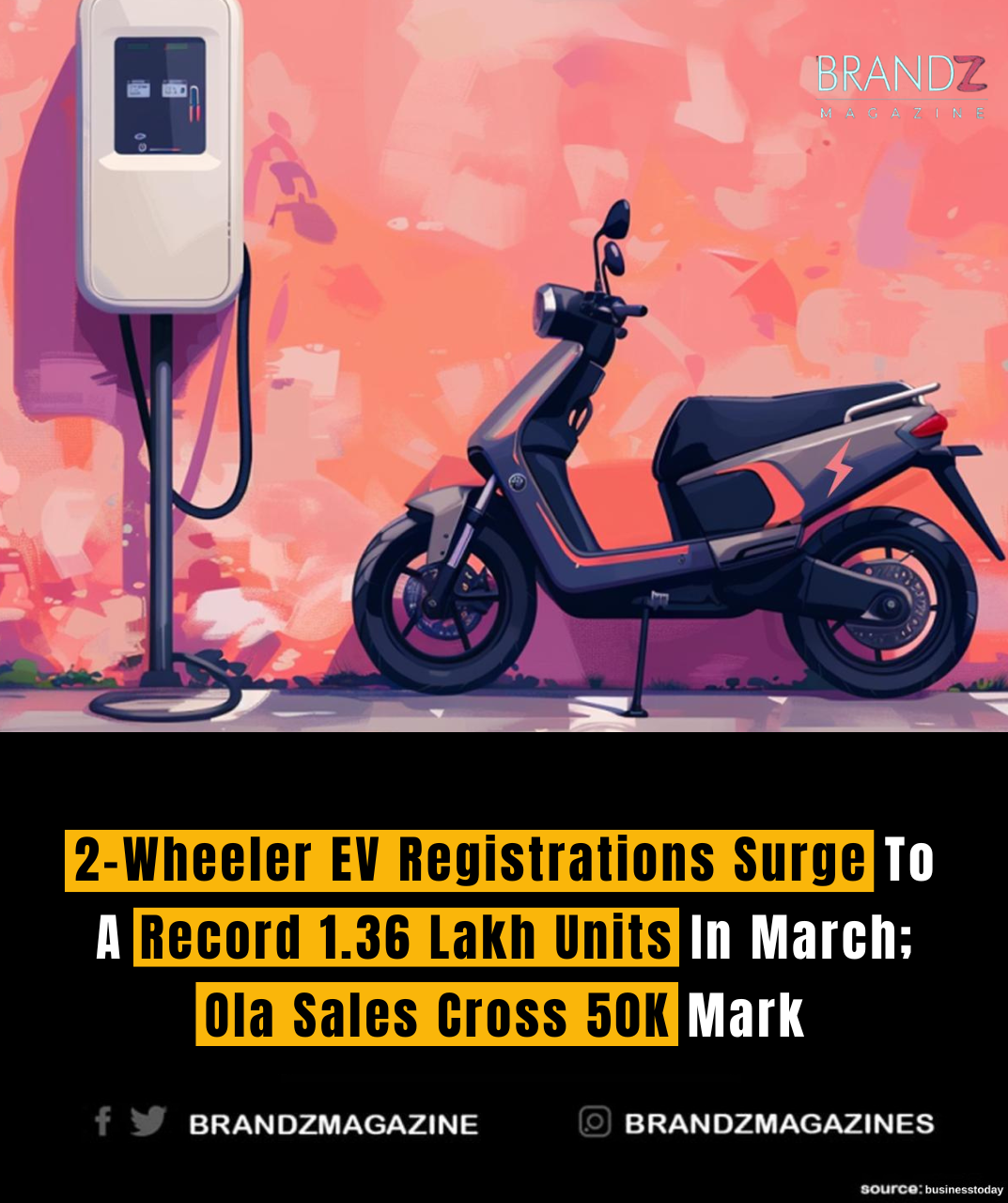
March witnessed a historic milestone in the electric vehicle (EV) segment as 2-wheeler EV registrations surged to a record-breaking 1.36 lakh units. This remarkable uptick reflects the growing adoption and acceptance of electric mobility solutions among consumers, driven by factors such as environmental awareness, government incentives, and advancements in EV technology.
Leading the charge in this electrifying growth is Ola Electric, whose sales crossed the 50,000 mark during the month. Ola’s strong performance underscores the success of its EV lineup and the increasing demand for electric 2-wheelers in India’s urban and rural markets.
The surge in 2-wheeler EV registrations signifies a significant shift towards sustainable transportation solutions, aligning with global efforts to reduce carbon emissions and combat climate change. EVs offer several advantages over traditional internal combustion engine vehicles, including lower operating costs, reduced air pollution, and enhanced energy efficiency.
Ola Electric’s achievement of surpassing 50,000 sales in March highlights the company’s strategic vision, product innovation, and market appeal. The Ola S1 and S1 Pro electric scooters, known for their performance, features, and competitive pricing, have garnered positive reviews and strong customer interest since their launch.
The success of Ola Electric and the broader surge in 2-wheeler EV registrations reflect a broader industry trend towards electrification and sustainable mobility solutions. With governments, businesses, and consumers increasingly prioritizing environmental sustainability, EVs are poised to play a pivotal role in shaping the future of transportation.
In addition to reducing carbon emissions and mitigating pollution, 2-wheeler EVs offer economic benefits such as lower fuel and maintenance costs, making them an attractive choice for budget-conscious consumers and fleet operators. The convenience of electric charging infrastructure and advancements in battery technology further contribute to the appeal of EVs.
The record-breaking numbers in 2-wheeler EV registrations also highlight the need for continued investment in EV infrastructure, policy support, and consumer awareness campaigns. Collaborative efforts between industry players, government agencies, and regulatory bodies are essential to accelerate the adoption of EVs and build a sustainable transportation ecosystem.
Ola Electric’s success story serves as an inspiration for other EV manufacturers, startups, and stakeholders in the mobility sector. The company’s focus on affordability, performance, and customer experience has positioned it as a frontrunner in India’s EV market, driving innovation and competition.
Looking ahead, the surge in 2-wheeler EV registrations sets a positive trajectory for the EV industry’s growth and development. As technology evolves, battery costs decrease, and charging infrastructure expands, EVs are expected to become mainstream choices for millions of commuters, contributing to a cleaner, greener, and more sustainable future.
In conclusion, the record surge in 2-wheeler EV registrations, coupled with Ola Electric’s milestone of crossing 50,000 sales, marks a significant moment in India’s transition towards electric mobility. With increasing awareness, investment, and consumer demand, EVs are poised to revolutionize the transportation landscape and pave the way for a cleaner, greener tomorrow.

